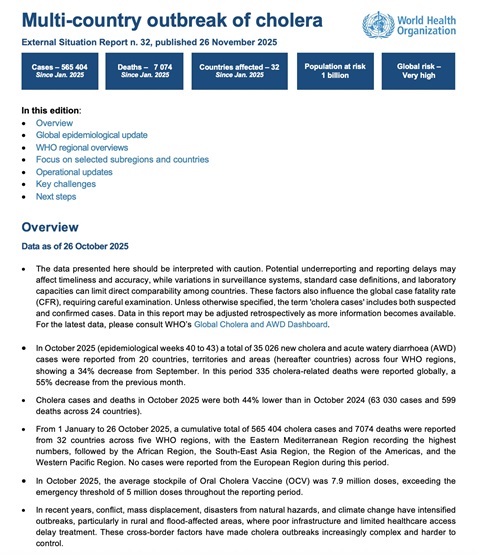New AI Policy Minor to Grapple with Analytical, Practical and Ethical Questions – Maxwell School of Citizenship and Public Affairs

Report on the Launch of an Interdisciplinary Minor in Artificial Intelligence Policy
Introduction and Strategic Alignment with Sustainable Development Goals (SDGs)
In response to the transformative impact of Artificial Intelligence (AI) across all societal sectors, the Maxwell School has initiated a new interdisciplinary minor in AI Policy. The program is designed to cultivate professionals capable of navigating the technical and policy dimensions of this emerging technology. This initiative directly supports the achievement of the United Nations Sustainable Development Goals (SDGs) by preparing leaders to develop, govern, and deploy AI in the public interest, ensuring that technological advancement contributes to inclusive and sustainable development.
Program Objectives and Curriculum Structure
The 18-credit minor, led by Associate Professor Johannes Himmelreich, provides a comprehensive educational framework. It addresses the critical need for governance structures that align technological innovation with global sustainability targets. The program’s core objectives are:
- To provide foundational knowledge in both AI systems and public policy analysis, fostering a holistic understanding of the technology’s societal implications.
- To develop practical quantitative skills for evidence-based policymaking, a crucial component for monitoring progress towards the SDGs.
- To explore the intersection of AI with critical policy areas, thereby addressing multiple SDGs simultaneously.
- To build capacity for creating AI tools that serve the public good and promote equitable outcomes, in line with the “Leave No One Behind” principle of the 2030 Agenda.
The curriculum represents a strategic partnership (SDG 17) between the Maxwell School, the College of Engineering and Computer Science, and the iSchool, making it available to all undergraduate students university-wide.
Direct Contributions to Specific Sustainable Development Goals
The minor’s curriculum is structured to directly address challenges and opportunities related to several SDGs:
- SDG 1 (No Poverty) & SDG 10 (Reduced Inequalities): The program examines the use of AI in the administration of social benefit systems and criminal justice, aiming to equip students to design and advocate for systems that are fair, transparent, and reduce inequality.
- SDG 4 (Quality Education): By offering this specialized minor, the institution contributes to inclusive and equitable quality education, providing students with the skills needed for the future of work.
- SDG 8 (Decent Work and Economic Growth) & SDG 9 (Industry, Innovation, and Infrastructure): The minor prepares students for emerging roles in public sector data science, fostering innovation and ensuring that AI development is human-centric and supports sustainable economic growth.
- SDG 16 (Peace, Justice, and Strong Institutions): A central focus on the ethics and governance of AI in public administration directly supports the goal of building effective, accountable, and inclusive institutions. It addresses the use of AI in drones and autonomous vehicles within a public policy framework.
Faculty Expertise and Research Initiatives
The program is supported by a team of scholars whose research aligns with sustainable development principles. Associate Professor Johannes Himmelreich’s work on the ethics and policy of AI for government contributes to SDG 16. His forthcoming publication, The Oxford Handbook of AI Governance, co-edited with Maxwell Dean Associate Professor Baobao Zhang, further examines the challenges at the intersection of AI and governance. Professor Zhang’s research, supported by a National Science Foundation award, on the “Future of Generative Artificial Intelligence for Current and Future Workers,” directly informs strategies for SDG 8. Additional expertise is provided by University Professor Hamid Ekbia and Associate Teaching Professor Jack Reilly.
Projected Outcomes and Career Pathways
It is anticipated that the minor will significantly enhance career opportunities for graduates in public sector data science and AI-related roles. As governments increasingly adopt AI technologies, graduates will be prepared to lead with the technical competence and ethical awareness necessary to ensure these technologies are leveraged to advance the Sustainable Development Goals. The program is designed to produce a new generation of policymakers and analysts who can shape a future where AI is a tool for positive global change.
Analysis of Sustainable Development Goals in the Article
-
Which SDGs are addressed or connected to the issues highlighted in the article?
The article on the Maxwell School’s new AI policy minor connects to several Sustainable Development Goals by focusing on education, innovation, institutional strength, and future employment. The primary SDGs addressed are:
- SDG 4: Quality Education: The entire article is centered on the launch of a new educational program designed to provide high-quality, interdisciplinary education on a critical emerging technology.
- SDG 8: Decent Work and Economic Growth: The minor is explicitly designed to enhance students’ career prospects and prepare them for the future of work in an AI-driven economy.
- SDG 9: Industry, Innovation, and Infrastructure: The program addresses the “AI technological revolution” and the need to govern emerging technologies, fostering innovation and building capacity to manage technological advancements.
- SDG 16: Peace, Justice, and Strong Institutions: The minor’s focus on AI governance, public interest, ethical awareness, and evidence-based policymaking directly relates to building effective, accountable, and just institutions.
- SDG 17: Partnerships for the Goals: The program is an interdisciplinary collaboration, bringing together different schools within the university (Maxwell School, College of Engineering and Computer Science, and the iSchool) to achieve a common educational goal.
-
What specific targets under those SDGs can be identified based on the article’s content?
Based on the article’s details, the following specific targets can be identified:
-
Under SDG 4 (Quality Education):
- Target 4.4: “By 2030, substantially increase the number of youth and adults who have relevant skills, including technical and vocational skills, for employment, decent jobs and entrepreneurship.” The article states the minor equips students with “knowledge and analytical skills” and “practical quantitative skills” to enhance “career opportunities in public sector data science and AI roles.”
-
Under SDG 8 (Decent Work and Economic Growth):
- Target 8.6: “By 2020, substantially reduce the proportion of youth not in employment, education or training.” Although the target date has passed, the minor’s goal of preparing students for future jobs directly aligns with the spirit of this target by providing skills to prevent unemployment. The research project on the “Future of Generative Artificial Intelligence for Current and Future Workers” also supports this.
-
Under SDG 9 (Industry, Innovation, and Infrastructure):
- Target 9.5: “Enhance scientific research, upgrade the technological capabilities of industrial sectors…and encourage innovation.” The program focuses on understanding and governing the “AI technological revolution” and supports research through faculty work like the “Oxford Handbook of AI Governance” and NSF-funded projects.
-
Under SDG 16 (Peace, Justice, and Strong Institutions):
- Target 16.6: “Develop effective, accountable and transparent institutions at all levels.” The minor’s curriculum, which focuses on “evidence-based policymaking” and governing AI in the “public interest,” aims to train future leaders who can build more effective and accountable public institutions.
-
Under SDG 17 (Partnerships for the Goals):
- Target 17.17: “Encourage and promote effective public, public-private and civil society partnerships…” The program itself is an example of a partnership, as it “brings together Maxwell’s strengths in public affairs with technical training offered through courses at the College of Engineering and Computer Science and the iSchool,” demonstrating an effective intra-institutional collaboration to build knowledge and capacity.
-
Under SDG 4 (Quality Education):
-
Are there any indicators mentioned or implied in the article that can be used to measure progress towards the identified targets?
The article, being an announcement, implies several indicators that could be used to measure the program’s success and progress towards the identified targets:
-
For SDG 4 / Target 4.4:
- Implied Indicator: The number of students enrolled in the new AI policy minor. The article mentions it “enrolled its first students this fall,” which is a direct measure of participation in this specialized education.
-
For SDG 8 / Target 8.6:
- Implied Indicator: The employment rate of graduates in relevant fields. The article’s claim that the minor “will most certainly enhance career opportunities in public sector data science and AI roles” suggests that tracking graduate job placements would be a key success metric.
-
For SDG 9 / Target 9.5:
- Implied Indicator: The volume of research and publications produced by affiliated faculty. The article explicitly mentions the “Oxford Handbook of AI Governance” and a “$567,491” National Science Foundation grant for a research project, which are concrete outputs of scientific and academic activity.
-
For SDG 16 / Target 16.6:
- Implied Indicator: The development of new AI governance frameworks or policies influenced by the program’s graduates and faculty. The goal to “shape how AI is developed, governed and deployed” implies that a long-term indicator of success would be the contribution of its alumni to creating effective and ethical AI policies.
-
For SDG 17 / Target 17.17:
- Implied Indicator: The establishment and success of interdisciplinary programs. The launch of the “interdisciplinary minor” itself serves as an indicator of a successful partnership between different academic departments within the university.
-
For SDG 4 / Target 4.4:
Summary of Findings
| SDGs | Targets | Indicators (Mentioned or Implied) |
|---|---|---|
| SDG 4: Quality Education | 4.4: Increase the number of youth and adults with relevant skills for employment. | Number of students enrolled in the AI policy minor. |
| SDG 8: Decent Work and Economic Growth | 8.6: Reduce the proportion of youth not in employment, education or training. | Employment rate of program graduates in relevant AI and data science roles. |
| SDG 9: Industry, Innovation, and Infrastructure | 9.5: Enhance scientific research and encourage innovation. | Number of research projects, grants (e.g., the NSF grant), and publications (e.g., the Oxford Handbook) by faculty. |
| SDG 16: Peace, Justice, and Strong Institutions | 16.6: Develop effective, accountable and transparent institutions. | Contribution of graduates and faculty to the development of ethical AI policies and governance frameworks. |
| SDG 17: Partnerships for the Goals | 17.17: Encourage and promote effective partnerships. | The establishment of the interdisciplinary minor through collaboration between the Maxwell School, College of Engineering and Computer Science, and the iSchool. |
Source: maxwell.syr.edu
What is Your Reaction?
 Like
0
Like
0
 Dislike
0
Dislike
0
 Love
0
Love
0
 Funny
0
Funny
0
 Angry
0
Angry
0
 Sad
0
Sad
0
 Wow
0
Wow
0
















































































